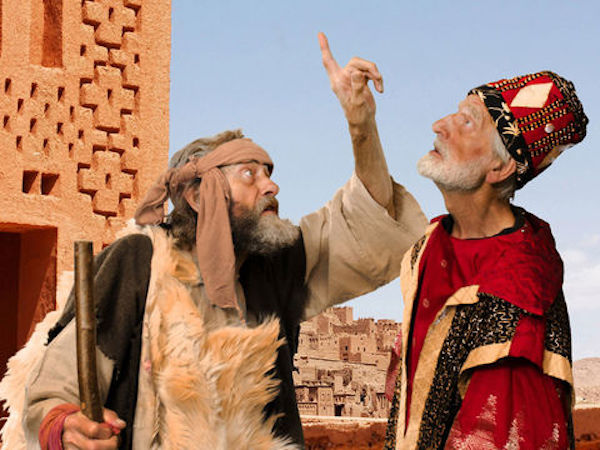The secret of Israel (9) – The God of Israel
The calling of Israel is to acquaint the world with the only God in heaven and on earth. For that purpose the Lord has created and chosen this people. If Israel walks in God’s ways she will be so blessed that the other nations of the world want to serve the God of Israel too. In that Israel is not only God’s first-born son but also the servant of the Lord.
God’s way with Israel will take up 1,100 pages of the Bible before we arrive at the testimony of the Gospels and the apostles. In them we get to know Israel but much more we get to know God with who He really is.
The Lord proves to be different than all the other gods. The Jewish philosopher Heschel has shown in a masterful and emotional way in his book “The Prophets” how different the God of Israel is compared with for example the Greek gods of the Olympics.
God is a God full of love and passion. He not only is a father to His people, but also the bridegroom, the beloved of Israel. He is the shepherd who grazes and leads the flock of Israel into a life of plenty and He is the hero who makes a stand against all the enemies of the people He has chosen as His companion in the history of salvation. God calls Israel the one He loves (Jeremiah 12:7), but also the apple of His eye and the crown jewels that will shine in His land. And when He thinks of His people longingly, of His favoured child, He is deeply moved (Jeremiah 31:20).
But God can also be hurt and provoked when Israel swaps Him for other gods, the abomination of the gentiles. He fulminates against His people, says that He is not waiting for their songs and their pious strumming of their instruments if her religion is nothing more than outward rituals. He shields off His prophet’s Jeremiah prayer when it shows how stubborn Israel is: “So do not pray for this people nor offer any plea or petition for them; do not plead with me, for I will not listen to you.” (Jeremiah 7:16).
This already begins in Samuel’s time, when Israel can do without God as her king and wants to be like all the other nations. All in all, the nations are not jealous of Israel’s unique position. It is quite often just the opposite. Israel has a lot of problems being the only nation belonging to God. And then we see that God punishes and chasten His people. The nation breaks in two and ten tribes go into exile. Nobody knows where they are now. Ultimately God sends the remaining tribes of Judah and Benjamin back to Babel, there from where He had called Abram. Ultimately Israel’s election seems to lead to one big disaster. Even the Temple is destroyed and God leaves His heritage.
And then even so: The same men of God who announce Israel’s judgment, testify about God’s immense faithfulness to His people. God’s calling and promises are irrevocable. In the deepest darkness of unbelief and exile the prophets speak of a future that is beyond comprehension. ““Though the mountains be shaken and the hills be removed, yet my unfailing love for you will not be shaken nor my covenant of peace be removed,” says the Lord, who has compassion on you.” (Isaiah 54:10).
And in the middle of the time of salvation and the restoration of Israel and the good ending of the history of salvation, appears in the preaching of the prophets the person of the King, whom God Himself will give: The Lion of the tribe of Judah, the new and perfect Son of David.




